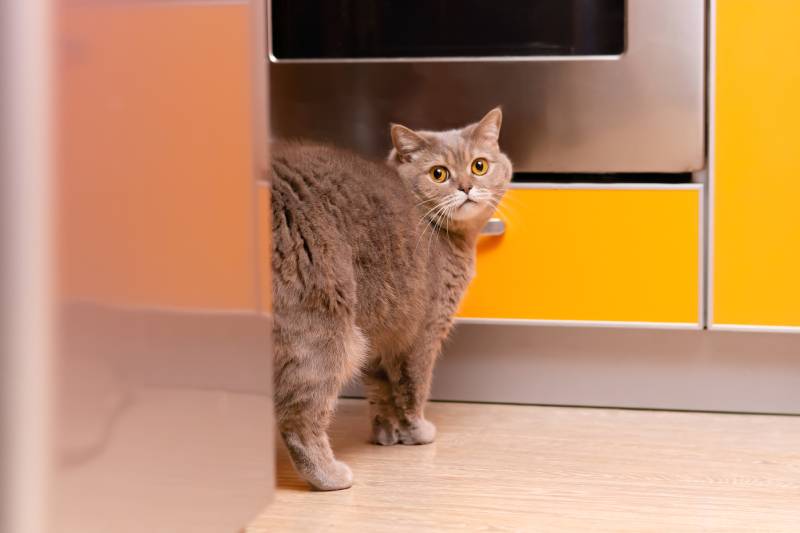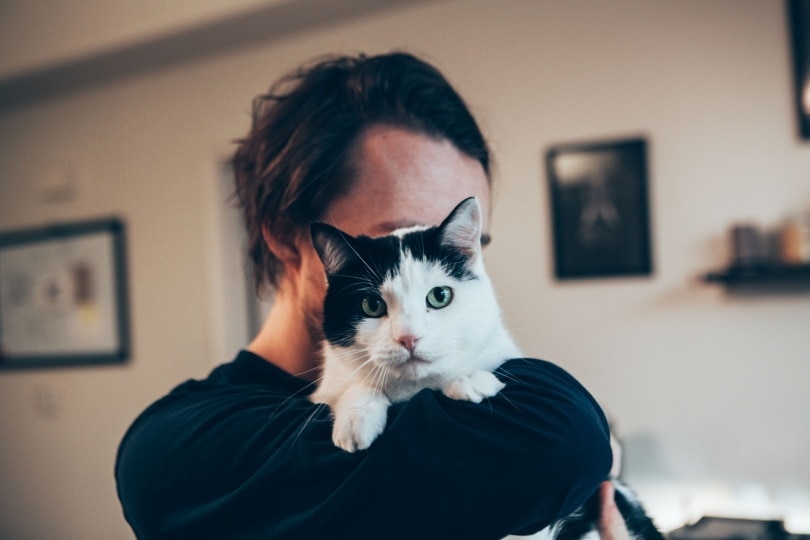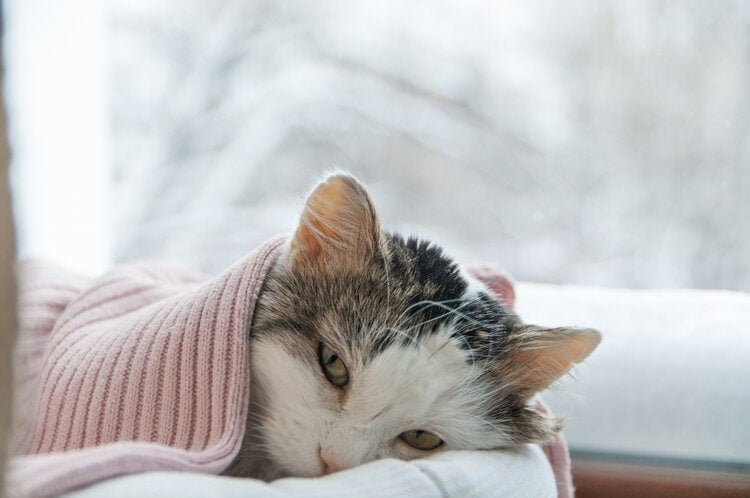Why Is Your Cat Biting You All of a Sudden? 5 Vet-Reviewed Reasons
By Shana Loven
Updated on
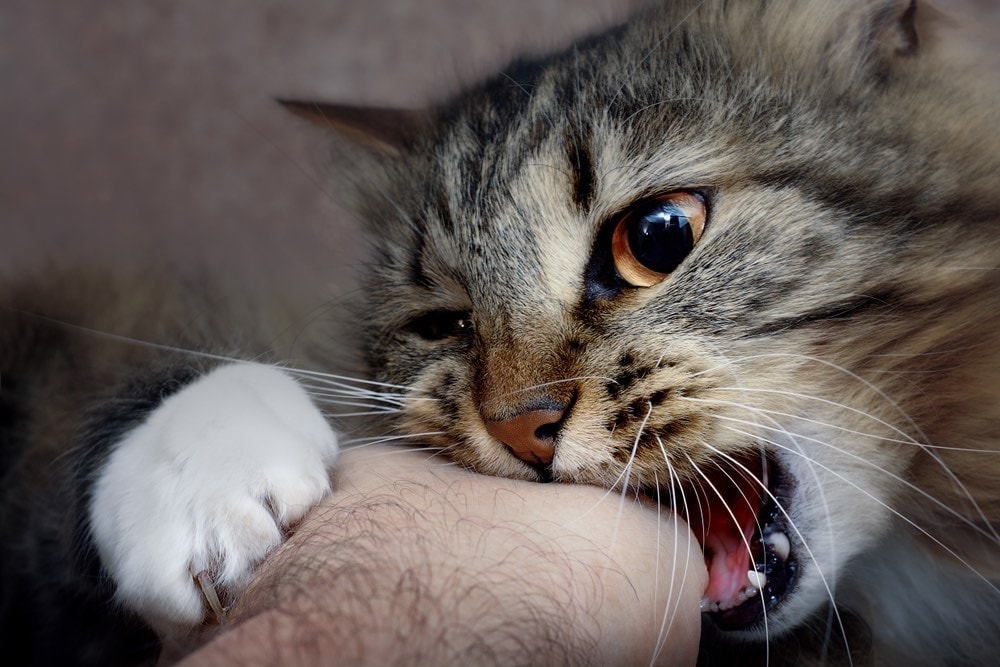
It’s a sunny Saturday afternoon, and your cat is hiding in a tunnel while you tease him with his favorite toy—a wand with a feathery end. You’ve been playing this hide-and-seek game for a while, when all of a sudden, your cat pops out and bites you! Your cat has never bitten you before, so you shrug it off at first. A couple days later, a friend is petting your cat when he tries to bite them as well.
What’s going on? Why is your cat suddenly trying to bite people? There can be several reasons why your cat is biting—we’ve rounded up some of the top reasons to help you demystify your cat’s new behavior.
Why Do Cats Bite?
Cats communicate with other cats using body language, and both visual and physical cues—and they sometimes expect you to pick up on these same cues. Cats can’t communicate with humans through traditional means because they can’t speak, so they find other ways to communicate what they’re feeling to you. Since cats are masters of non-verbal communication, you’ll need to observe your pet’s behavior patiently so you can learn to read their body language to avoid whatever actions are leading to biting behavior.
The 5 Reasons Your Cat Is Biting You All of a Sudden
1. Overstimulation
This is one of the most common reasons that cats bite and is usually related to petting. But too much play can also be a culprit. Cats can get overstimulated, just like humans, but they usually give signs that they need a break from petting or playing.
Common indicators of overstimulation are flattened ears, twitching tail or skin, stiff body, dilated eyes, forward whiskers, or their eyes looking at your hand like it’s a tasty tidbit. If you notice any of these signs, take a break and give your cat some space to prevent biting.
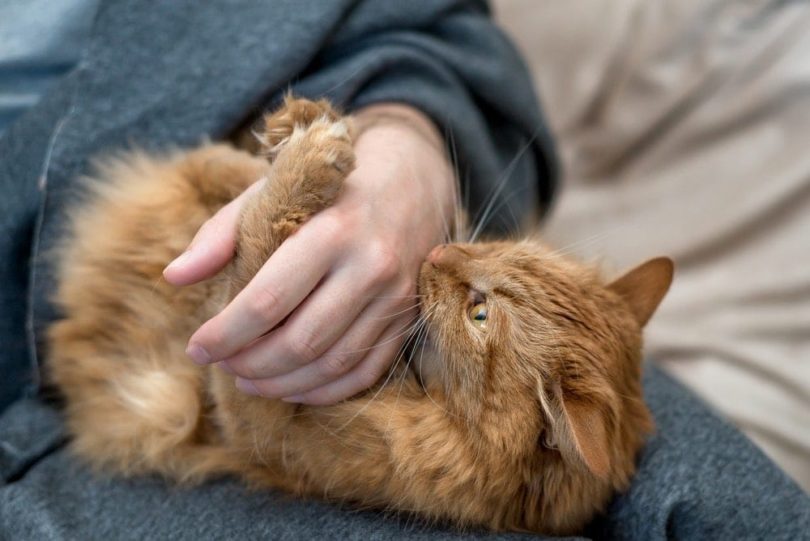
2. Communication
As previously mentioned, cats can only “talk” to us through body language and vocalization. Humans aren’t as keenly aware of a cat’s body language as other cats are, so your furry feline may resort to biting to get their point across.
This behavior is usually in the form of a “love nip”, or a gentle bite, usually when they want you to continue petting them. If your cat gives you one of these nips, you should ignore it and move away. If you give in and continue petting them, you may be reinforcing the unwanted behavior.
3. Stress, Pain, or Fear
Cats can’t tell you when they are in pain, are afraid of something, or are experiencing stress—so they sometimes act out by biting you or someone close to you. Cats may be stressed out by things like the sudden introduction of children into the home, a relocation of the litter box, or the introduction of a new pet.
Cats tend to hide their pain and you might not know anything is wrong until they start suddenly biting you. Fear is a cause of sudden biting as well—think about how your cat reacts when it’s time to go to the vet. Taking note of what was happening right before your cat bites you will help your figure out if pain, stress, or fear are the culprit behind this sudden behavior.
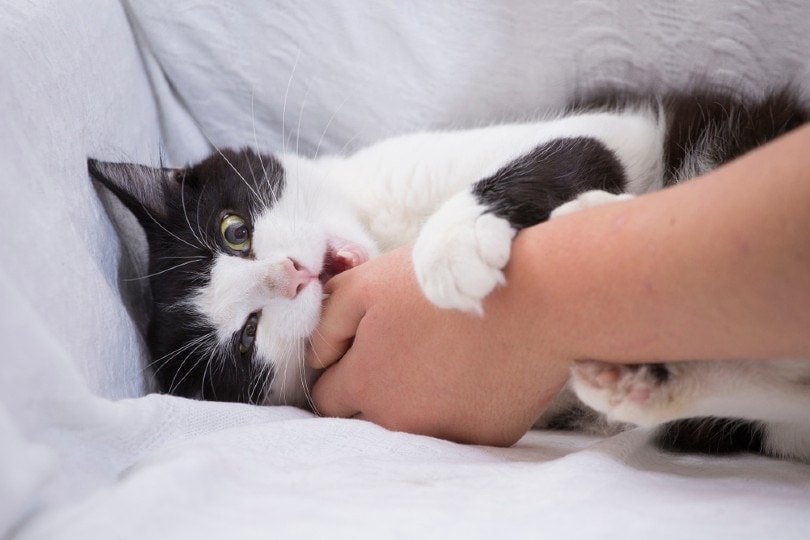
4. Playful Aggression
Some cats learn biting behavior as a kitten, when they’re learning bite inhibition skills. If a kitten has kitten mates or an older cat willing to play with it, they will learn bite inhibition naturally through playing with the other cat. If the kitten is a lone pet, it’s up to you to teach them that it’s not okay to bite you during play.
Don’t use your hands near their mouth while you’re playing, and if they go after your hand, redirect them to a stuffed cat toy instead. Cats respond to body language, so don’t react if you are bitten. Instead, stand up to remove yourself and redirect them to a toy again.
5. Lack of Human Interaction
Sometimes, cats bite because they weren’t properly socialized as kittens to not bite. You’ll need to start retraining your cat that it’s not okay to bite you, friends, or family members.
If you’re petting or playing with your cat and they try to bite you, stand up and redirect their attention to a toy, but don’t re-engage with the playing. Cats respond to body language, but you may have to do this several times until they make the connection that biting means you will stop petting or playing with them.
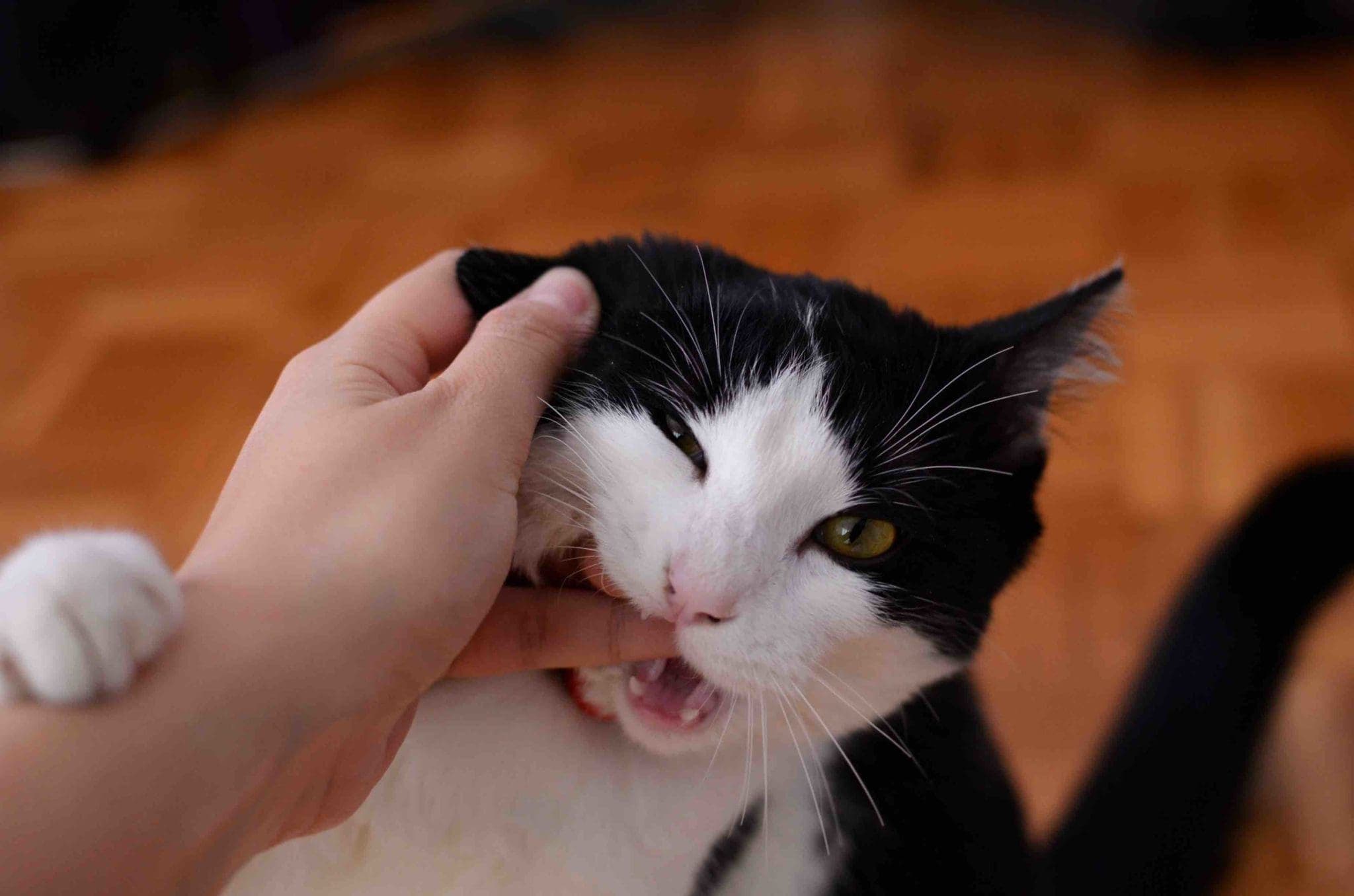
Cat Bite Injuries and Infection
Cat bites can result in infection. The mouth of a cat contains bacteria, and when it bites through one’s skin with its sharp teeth, it can inject bacteria into the skin. Puncture wounds typically heal quickly, which can trap the bacteria under the skin, leading to sometimes very nasty cellulitis cases.
If a cat bit you, call your doctor’s office to determine the best way to treat your bite. If your cat got into a tussle with another cat in the household (or a neighborhood cat), call your vet immediately to determine the best way to treat the affected pet. It’s important to seek medical attention for any pets or humans that your cat bit.
Conclusion
Cats typically don’t bite without reason, whether it’s overstimulation, communication, fear, pain, stress, playful aggression, or that they just never learned not to bite humans.
If you suspect your cat is biting out of pain, contact your vet for an appointment to get a checkup. Biting from fear, stress, or overstimulation may need some detective work and paying close attention to your cat to figure out the trigger. Playful aggression and biting can be redirected into better habits with some retraining and patience.
Featured Image Credit: Nau Nau, Shutterstock



